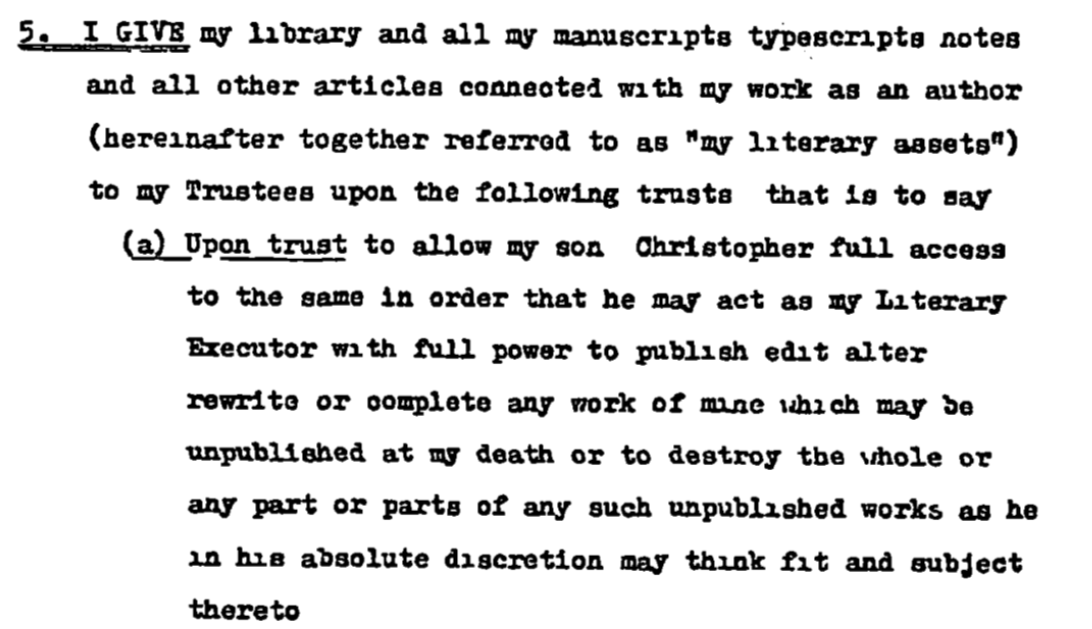As I've been reading the books/stories published by his son after his death, which are very much unfinished, I can't help but think of how embarrassing I would find it if somebody managed to dig up old, early versions of my own writings, always radically worse and downright misleading compared to the finished products.
I assume that Tolkien the elder gave his permission before making his final journey, or perhaps had written it into his will, for his son to publish/do as he found best with all these private notes and grossly unfinished stories. But is this known? One would think that, if such is the case, this would be worthy of a mention in the massive commentary that Christopher wrote, but so far, I've not spotted anything like that.
The situation seems to almost mirror the relationship between Bilbo and Frodo, even though they weren't father and son, in that the latter finished the book which had been begun by the former. (Well, I suppose it was Sam who ultimately finished it, after Frodo had left to Valar Island.)
The thought strikes me that if he had really wanted that stuff to be published, he would have made more of an effort to at least make some crucial general notes to his son or whoever would be tasked with making sense of it, telling them the general "final structure", and of course organizing and date-marking it all far better while working.
I'm thankful for the unfinished stories, but it's a shame how much his son had to guess his way to any kind of coherent structure, and it does to some extent take away from the stories to know how wildly different they were in their earlier forms, as instead of a mysterious finished text whose "history" we know nothing about, we get to see all the silly and random ideas that he was considering and most likely didn't intend for anyone to ever take part of.
But perhaps he even wrote about this very topic while still active, and I just haven't found it yet?

